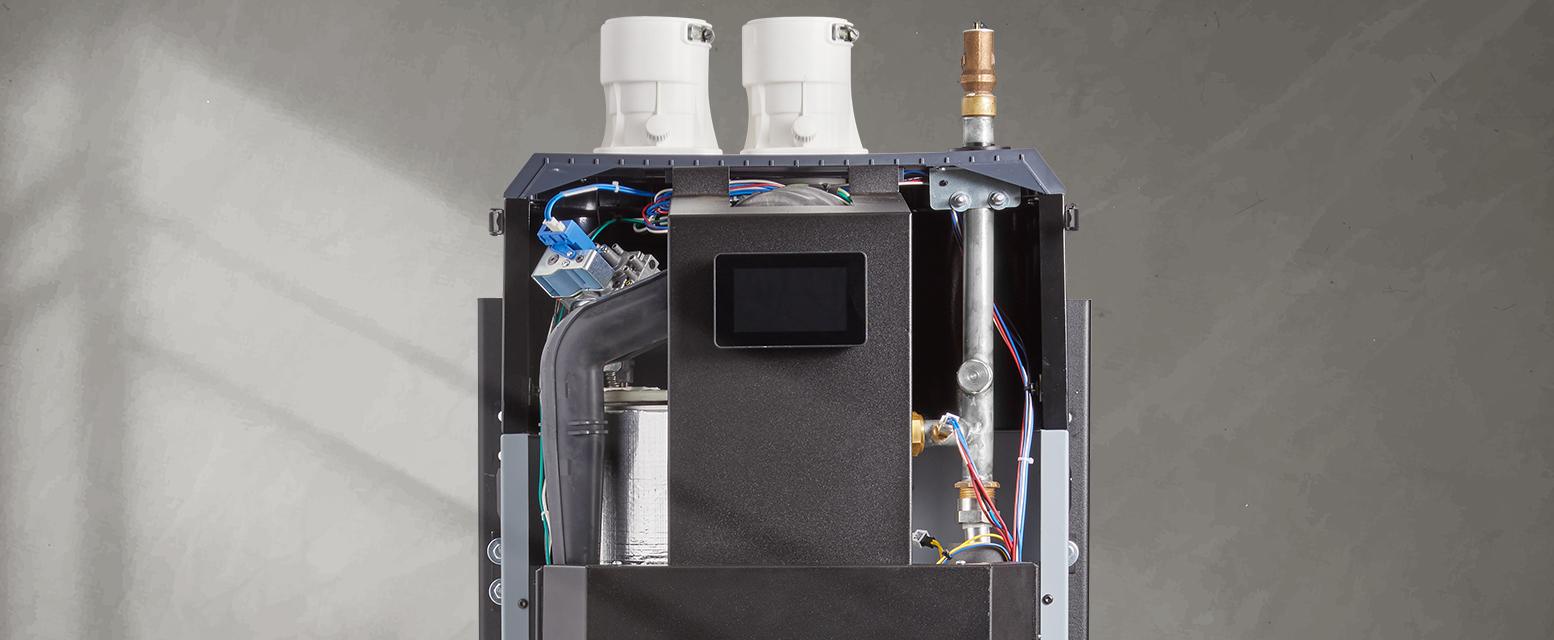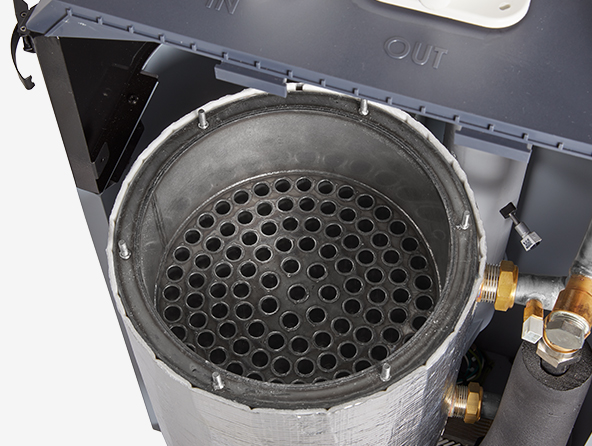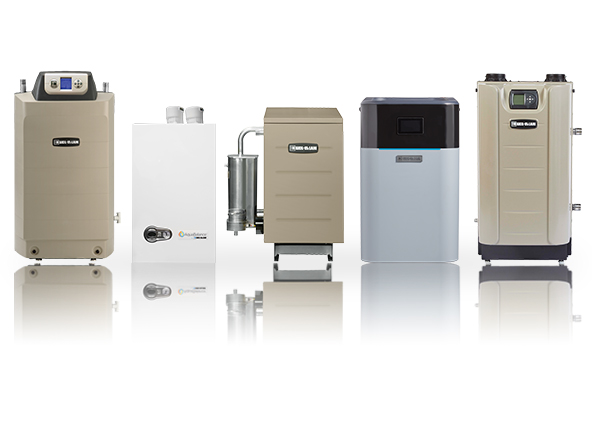
Generally, a boiler heats water that’s delivered through copper and/or plastic (PEX) pipes inside a building’s walls and floors. Popular high-efficiency boilers tend to be more expensive at installation, but lower utility bills pay you back after time. In fact, the U.S. Department of Energy estimates that replacing an older boiler system with a new, high-efficiency one can cut fuel bills in half. To protect that investment, high-efficiency boilers need some maintenance, just like your car.
Why high-efficiency boiler maintenance is important
High-efficiency boilers especially benefit from the right maintenance because of the technology inside—some achieving upwards of 95 percent efficiency. The intense environment inside a high-efficiency boiler should be monitored and serviced to maintain its peak efficiency and keep things comfortable:
- The combustion and extreme temperatures created in the heat exchanger in order to heat the water can lead to residue.
- Rapid temperature changes form condensation and combustion byproducts that can lead to drainage clogging.
- A byproduct of the combustion process can mix with condensate and raise pH to damaging levels.
- The repeated firing of the boiler flame wears on the flame rod sensor
sthe boiler depends on. - Air intake pipes can accumulate debris and can stall the system.
- The air intake pipe or vent could be clogged causing your system to occasionally stall out or lock out which will leave you without heat or hot water.
- Water levels must be maintained properly to prevent permanent damage.
Routine boiler inspection checklist
Whether you’re a homeowner or a building professional, there are routing steps you can take to keep your high-efficiency boiler performing. Some of these you can do in passing, others are more involved and can be done less frequently. If you notice any issues, we highly recommend you contact the contractor who sold you the unit for a solution. Here are some of the inspection and maintenance steps you can take at your home or facility:
- Check the air vents and flues for any blockage and clear, if able
- Look at the pressure gauge to ensure the water level is staying about the same—system pressure declines as water is lost
- Keep an eye out for dripping water, it may indicate pressure issues
- Clear the area around the boiler. All those boxes, bags and other stored items should be moved away to allow the boiler to breathe as well as any chemical containers such as solvents and cleaners
- Check piping for any signs of leakage or deterioration
- Investigate the condensate drain line, PVC fittings, drain system, and drain trap for blockages

Book an annual boiler service appointment
Boilers should be inspected and serviced by a professional installer or technician at least once a year. Even if you’ve taken good care of your high-efficiency boiler, the trained eye of a professional can address smaller issues and prevent bigger more expensive repairs or replacement—again, to protect your investment. Each contractor is a little different, but during a tune-up or maintenance visit, technicians will typically:
- Clean and inspect the heat exchanger for wear and tear
- Check and clean burner assembly
- Test low-water cutoff
- Ensure all electrical wiring is intact and joint/pipe connections are secure
- Test water pH levels to make sure they are in a safe range
- Clean, flush and inspect condensate systems
- Make sure the system fires up properly, by testing and clean sensors, ignitor, and burner assembly
- Check the venting system for deterioration, corrosion, or blockage
- Check settings and test safety and operating controls
- If system water is dirty, power flush the system piping to maintain efficient water flow
- Check for correct boiler operation once the boiler has been cleaned and examined
 Frequently asked questions
Frequently asked questions
High-efficiency boilers are new in the grand scheme of heating equipment. Many buildings and homes still count on standard boilers. Here, we answer some of the most common questions we get about the latest generation of high-efficiency boilers.
When is the best time to service my high-efficiency boiler?
It’s best to service a high-efficiency boiler when temperatures outside are not too extreme and as close to when you’ll turn the system on for seasonal space heating season as possible.
Does servicing a boiler make it more efficient?
Yes. The unconstrained flow of air, water and power is critical to performance. Leaky and/or clogged pipes or air vents force the system to work harder than it needs to, negating efficiency.
How do high efficiency boilers work?
Two key parts of a boiler are the heat exchanger and heat engine. Put simply, the heat exchanger transfers heat from the combustion process into the water that’s circulated through the building. The more energy the heat exchanger can transfer, the more efficient the boiler is.
High-efficiency boilers extract heat so efficiently that the flue gases leave the boiler at temperature low enough that they actually condense inside the heat exchanger.
Do boilers lose their efficiency with age?
They may, but not in all cases. Servicing hydronic system piping as well as the boiler are critical in maintaining the boiler’s efficiency. Dirty system water will not absorb as much heat energy as clean system water and will degrade the heat-exchanger’s ability to transfer heat energy into the water, therefore reducing its efficiency. Clean system water and piping maximize the boiler's efficiency.
Also, through the season combustion byproducts will deposit on the heating surface in the heat-exchanger, preventing some heat energy transfer into the system water. Removing these byproducts annually, before the heating season, will restore the boilers peak efficiency.
How much money can high-efficiency boilers save?
Most standard boilers have an efficiency of about 85 percent. This means that roughly 80 or 85 cents of every dollar spent on gas goes towards heating, and 15 cents of worth of heat escapes. High-efficiency boilers provide up to 96% efficiency.
To learn more about high-efficiency residential or commercial boilers and how Weil-McLain can help you find and maintain the right one, click here. To learn about energy efficient rebates in your area, click here.
